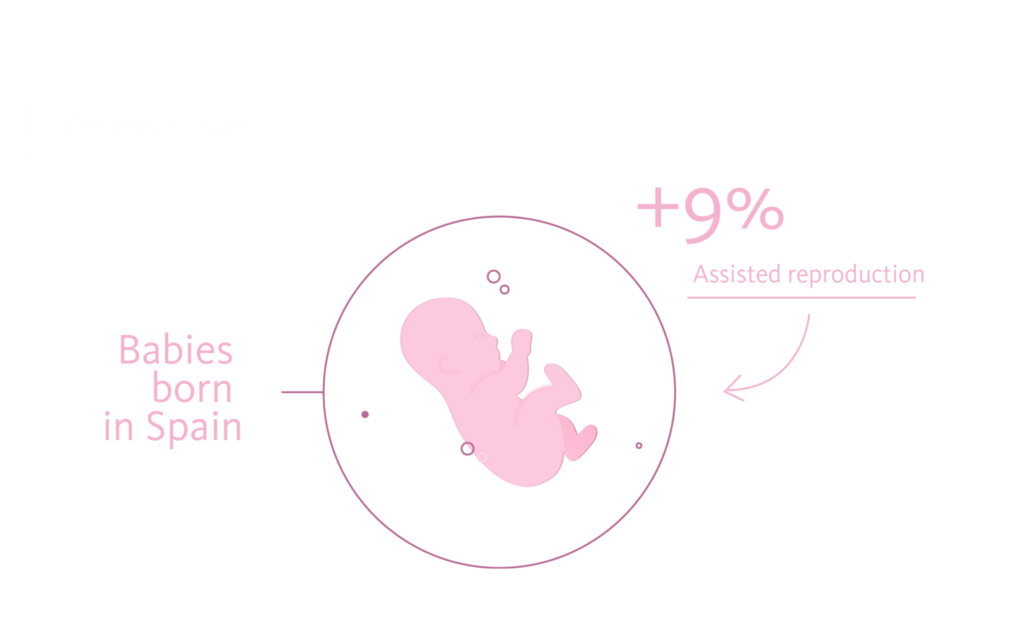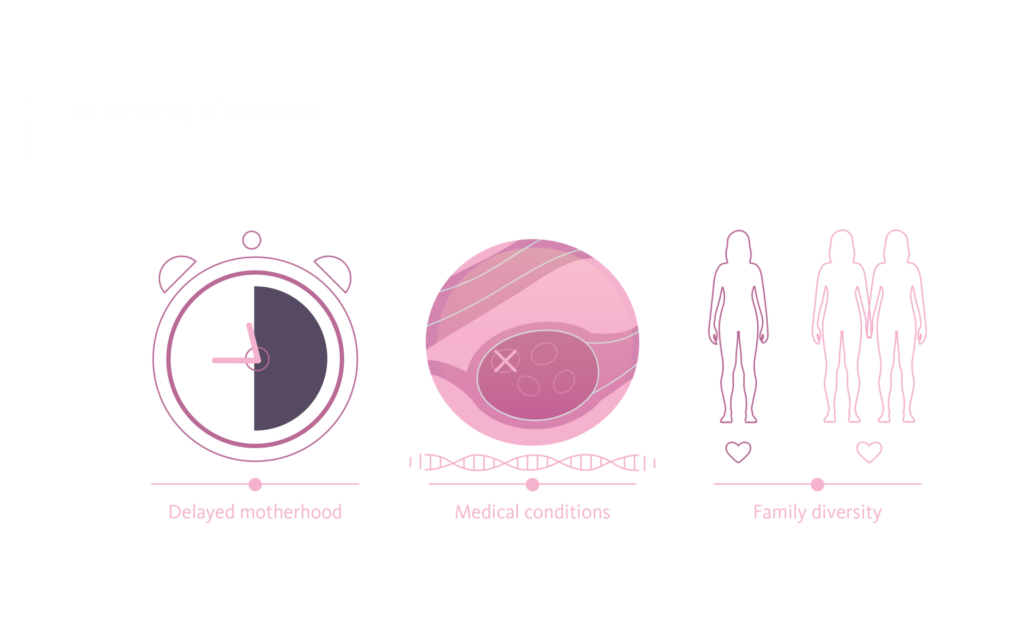Egg donation is an altruistic act that plays a fundamental role in Spanish society. Not only does it allow many people to fulfill their dream of starting a family, but it also contributes to the advancement of medical treatments that improve the quality of life for those facing fertility challenges.
Egg donation: a Pillar of Assisted Reproduction
In Spain, assisted reproduction has gained significant relevance thanks to medical advancements and favorable legislation. According to data from the Spanish Fertility Society (SEF), more than 9% of babies born in the country are conceived through assisted reproductive techniques. Gamete donation is an essential part of this process, particularly for couples with severe infertility, single individuals, and same-sex couples who wish to have children.

The Assisted Reproduction Law (Law 14/2006) regulates gamete donation in Spain, ensuring it remains anonymous, altruistic, and voluntary. A compensatory financial amount is provided to cover possible expenses related to the process. Additionally, the legislation enforces strict protections for both donors and patients, guaranteeing their health, confidentiality, and data security throughout the process.
An Act of Profound Generosity
The impact of egg donation goes beyond statistics. For those who cannot conceive naturally, receiving donated eggs or sperm can be the only way to build a family. The generosity of donors makes a real difference in their lives, helping them overcome medical and emotional barriers.
At the same time, donors are also key protagonists in this transformative act. Many individuals who choose to donate gametes describe the experience as deeply rewarding, knowing they have helped make someone’s most cherished dream come true.
Why Are More Egg Donors Needed?
The demand for fertility treatments has increased due to various factors:
Delayed motherhood
More women are postponing motherhood for personal or professional reasons, which can reduce their ovarian reserve.
Medical conditions
Some women face issues such as premature ovarian failure or genetic disorders that prevent them from using their own eggs.
Diversity in family structures
Single women and LGBTQ+ couples increasingly turn to egg donation to build their families.
As a result, treatments using donor eggs are rising significantly each year. According to the latest SEF report, 22,658 donor egg cycles were performed in Spain in 2022, a number that continues to grow steadily.

Importance for Society
Gamete donation also benefits society as a whole by:
Addressing low birth rates
Spain has one of the lowest birth rates in Europe. Assisted reproduction treatments are a key tool in tackling this demographic challenge.
Advancing medical science
Progress in fertility treatments relies heavily on the availability of gametes for both research and clinical use.
Promoting solidarity
This altruistic act reflects a society committed to collective well-being.
Responsible Donation Management
At Gametia Biobank, we work every day to ensure that fertility treatments in assisted reproduction centers are safe, ethical, and successful. But we cannot do it alone—we need the generosity of women willing to donate their eggs and offer hope to those who need it most.
Becoming an egg donor is more than just a medical process; it is a profoundly human act of generosity that must be managed responsibly. That is why Gametia Biobank recruits donors exclusively in Spain, ensuring full traceability of donations through an identifiable SEC code on all donor samples.

Gametia Biobank does not use international donor recruitment agencies or outsource egg retrieval procedures to other countries. Instead, we recruit only Spanish donors or foreign residents with permanent residency in Spain, who undergo a rigorous medical screening.
This ensures that all donation codes include Spain’s country identifier, guaranteeing that the sample was obtained within Spain and properly registered with a unique donation code in the SIRHA platform.
References
- Sociedad Española de Fertilidad (SEF). (2023). “Datos sobre reproducción asistida en España”. Disponible en: https://www.sefertilidad.net
- Girela-López, E., & Villalobos-Pérez, S. (2020). “Ética y altruismo en la donación de gametos”. Revista Iberoamericana de Bioética, 12, 23-36.
- Ministerio de Sanidad, Servicios Sociales e Igualdad. (2016). Ley 14/2006 sobre Técnicas de Reproducción Humana Asistida. Disponible en: https://www.mscbs.gob.es
- Dondorp, W., & De Wert, G. (2019). “Ethical perspectives on gamete donation”. Reproductive Biomedicine Online, 38(4), 671-680.
